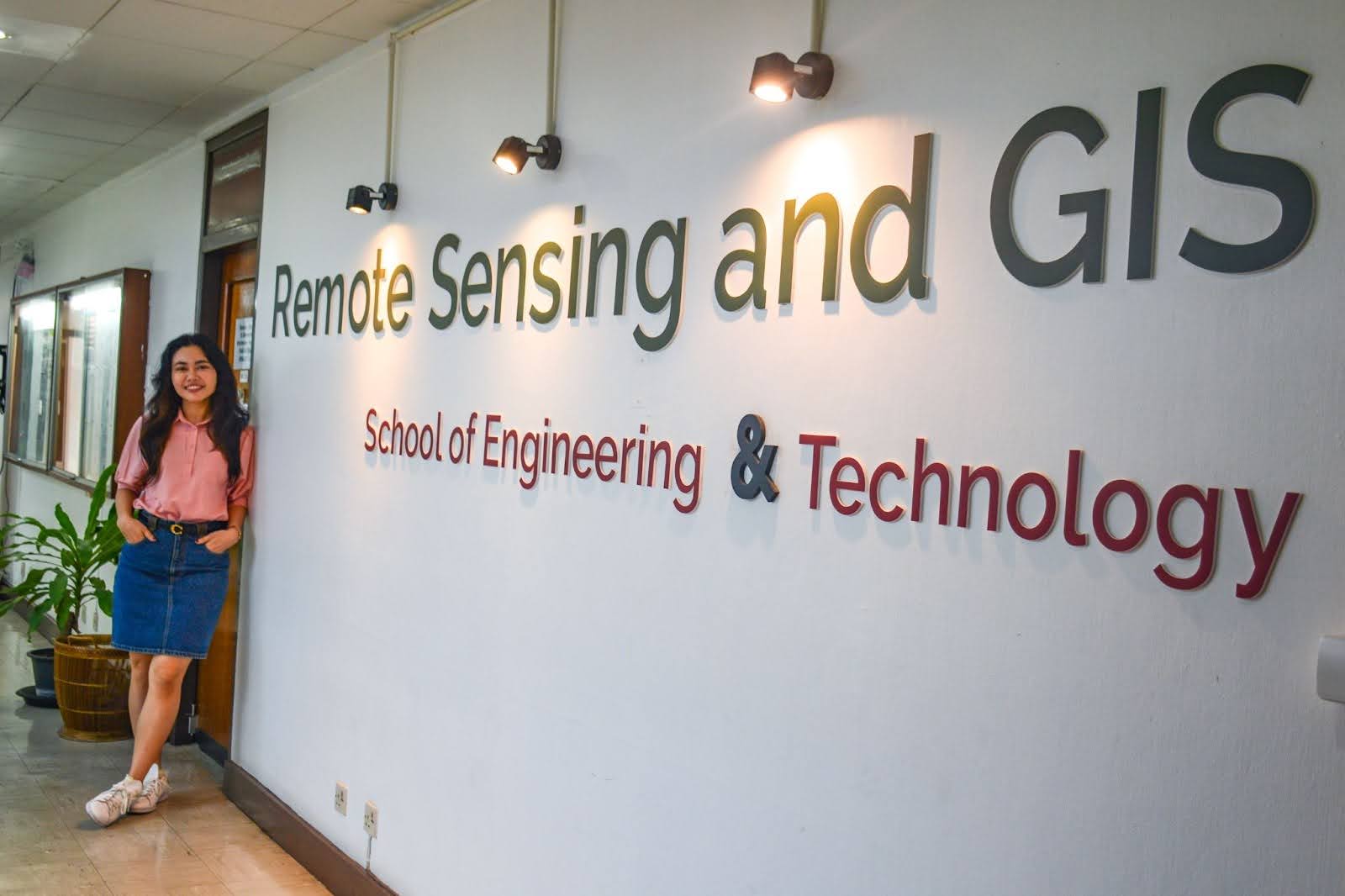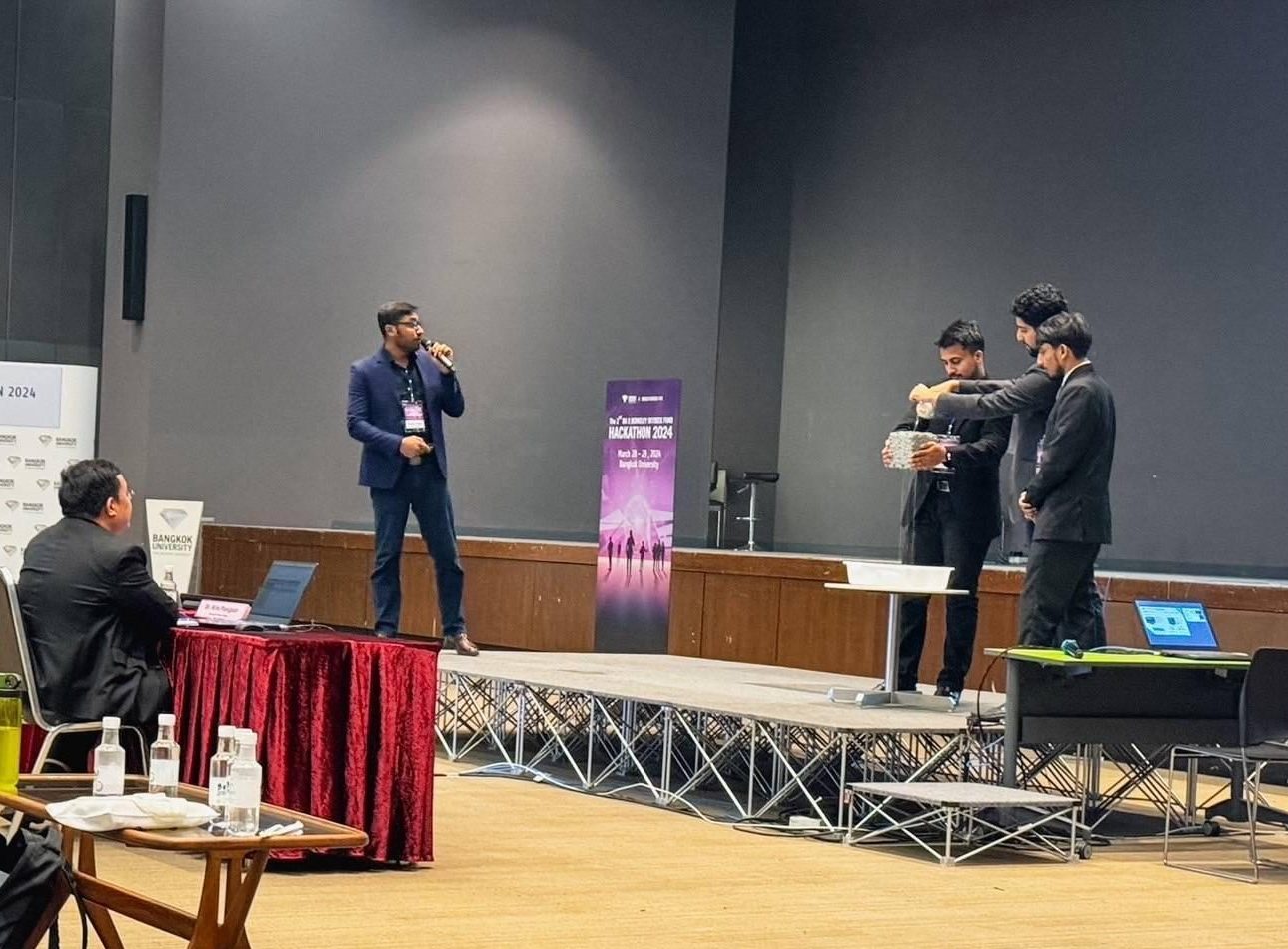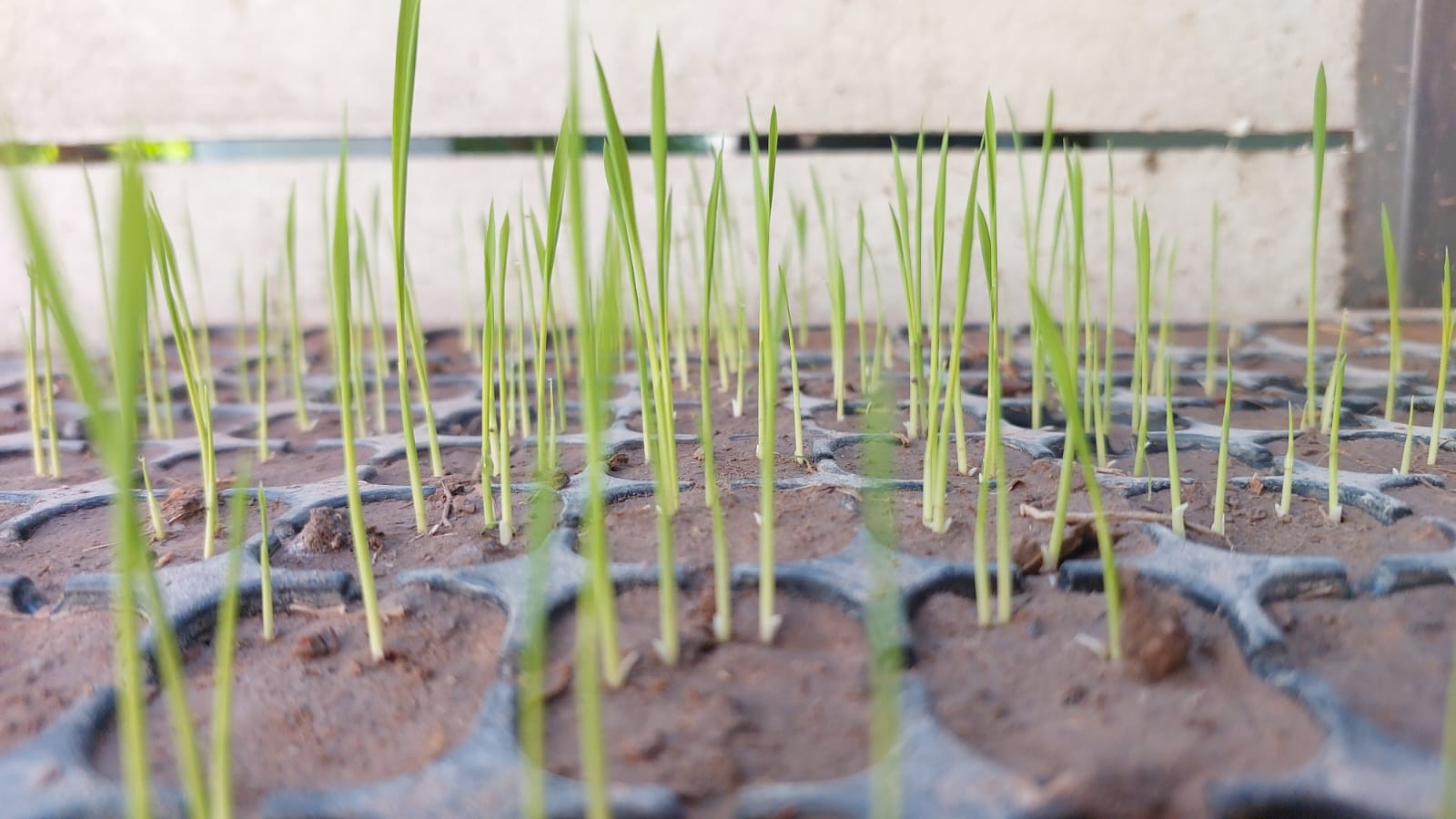By Nitipol Kiravanich
July 4 – 5, 2022 — Asian Institute of Technology (AIT), in collaboration with Nippon Koei Co, Ltd and Team Consulting Engineering and Management Public Company Limited (TEAM Group), held a two-day hybrid capacity-building workshop titled ‘Climate Change Adaptation in Agriculture for Enhanced Recovery and Sustainability of Highlands’ to strengthen the capacity of local governments and communities (especially in Nan and other highland provinces); address climate change and demonstrate climate-smart agriculture (CSA) practices and technologies, and to train relevant staff from the Ministry of Agriculture and Cooperatives at a national level, and other highland provinces. This capacity-building event is one of the activities of ADB TA-9993 THA: Climate Change Adaptation in Agriculture for Enhanced Recovery and Sustainability of Highlands.

Since agriculture remains a key sector in Thailand’s economy (with over 48% of the population living in rural areas and over 30% employed in agriculture) — in northern Thailand, monocropping has become the dominant economic activity following the conversion of large tracts of forests into agricultural land, the expansion of upland maize cultivation is believed to have played a key role in deforestation and environmental problems in the project area in Nan Province located in northern Thailand.
Unsustainable farming practices and over-exploitation of natural resources led to severe resource degradation, low productivity, adverse health impacts, and unstable incomes. Therefore, climate variability has manifested through rising temperatures and a greater frequency of extreme weather events such as droughts and floods. This matter is expected to be exacerbated in the future.
The ethnic mountainous farmers in remote areas are directly and severely impacted by climate change — addressing the degradation of natural resources and impacts of climate change in close cooperation with local farmers and government agencies is critical to enhancing the recovery and sustainability of highland communities and ecosystems.

In the opening remarks, AIT President Dr. Eden Woon highlighted that capacity building for local government officials is crucial to understanding the current climate change vulnerability, agriculture systems, and most importantly, formulating adaptation strategies to offset the negative impact on agriculture and livelihood.

In support of AIT President, Prof. Mukand Babel from the School of Engineering and Technology (SET) further highlighted the cruciality of capacity building in climate adaptation and agriculture as the key element to sustainability.
“The capacity building on knowledge and skill related to climate change vulnerability assessment and how we integrate climate change concerns in local agriculture, agriculture product quality concerning market linkages and alternate livelihoods of farmers, especially in highland areas,” Prof. Babel explained the importance of this workshop.
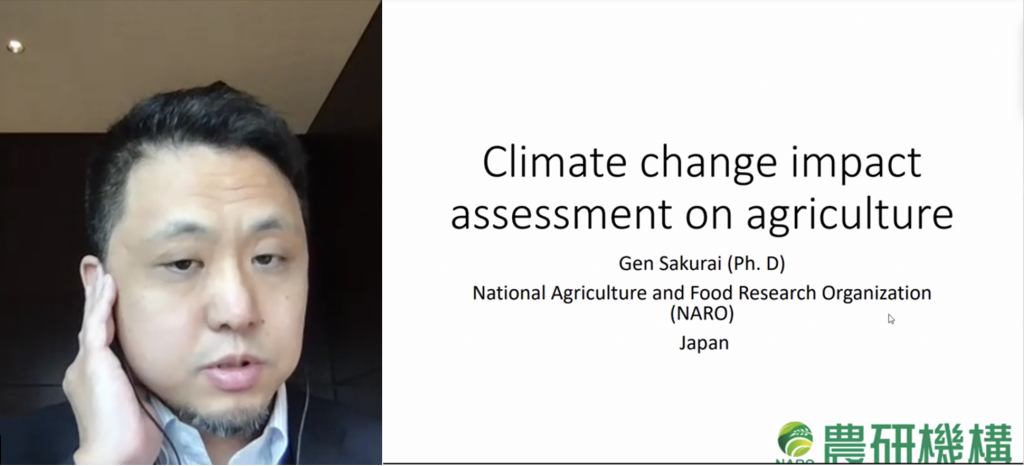
A food and agriculture expert from National Agriculture and Food Research Organization (NARO), Dr. Gen Sakurai shared his experience on the assessment of climate change in the Agriculture sector (in Japan) and underlined the crucial negative impact on livelihood. Dr. Sakurai explained that before global warming became the focus of attention, the problem of agriculture, especially in high latitudes, was the cold weather; as temperature decreases, it has various negative effects on crops.
However, as the temperature rises (due to global warming and climate change with the projections that by 2050 temperature will increase by nearly two Degrees Celsius), a much greater impact will be expected on human starvation. From his analysis, future climate combined with strong crop failure, the number of people at risk of starvation will be 600 million and 530 million in the no- and maximum-global warming-response cases, respectively.
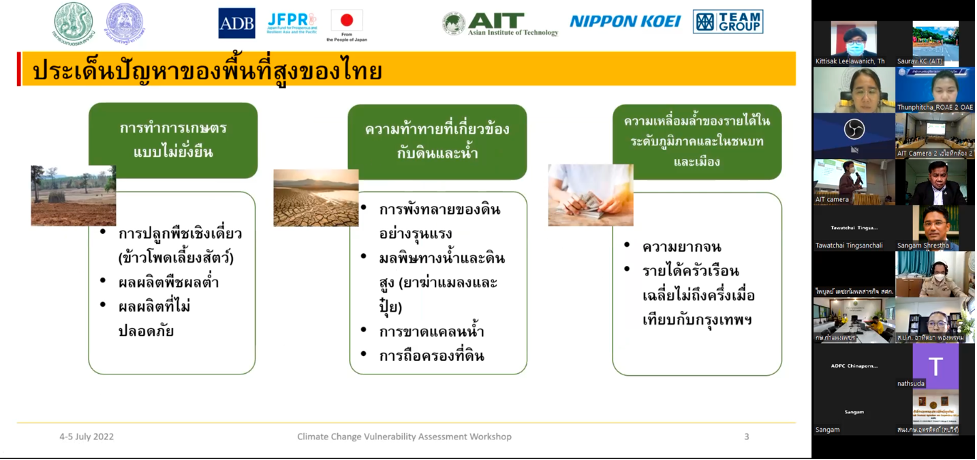
Pioneers of this project, Prof. Sangam Shrestha from AIT and Associate Prof. Dr. Nathsuda Pumijumnong from Mahidol University, shed light on the fundamental issues, containing three main factors, particularly unsustainable agricultural practices, challenges in soil and water management, and inequality in rural and urban areas.
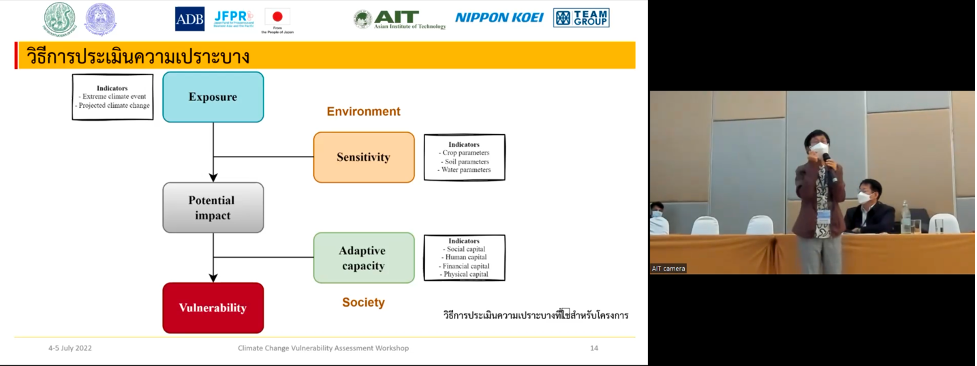
Dr. Pumijumnong further underscored three crucial factors of exposure, sensitivity, and adaptive capacity for government officials and related parties to assess climate vulnerability for future policy adaptations.
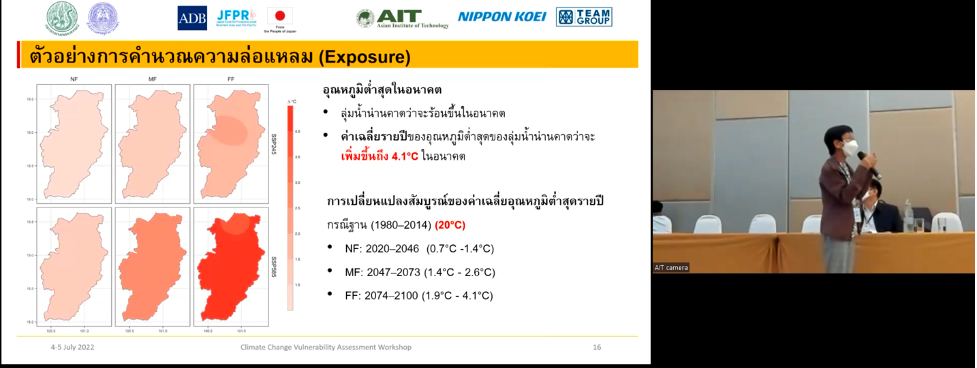
Demonstrating a closer look at exposure assessment, Dr. Pumijumnong and the team utilized a combination of General Circulation Models (GCMs, a class of computer-driven models for weather forecasting, understanding of climate, and projecting climate change); Shared Socioeconomic Pathways (SSPs, scenarios of projected socioeconomic global changes up); and quantile mapping to determine climate and environmental changes.
According to their investigations, Nan province’s temperature will likely rise in the future, with an average lowest temperature of 4.1 °C increase. Their findings presented that agriculture in highland areas is at risk of climate change and degradation of the environment, and the vulnerability can be assessed using top-down and bottom-up approaches.
With an emphasis on adaptive capacity, AIT researchers from Water Engineering and Management (WEM), Dr. Mohana Sundaram Shanmugam; Mr. Suwas Ghimire; Ms. Piyanuch Nontikansak; Ms. Arisara Nakburee, and Ms. Pragya Pradhan gave examples with suggestions that when droughts take place because of unusual low rainfalls, farmers should prepare for water supply and adapt to unexpected events. Moreover, with an increase in flooding, individuals should be granted access to information; while heatwaves may emerge, local farmers should be informed and comply with adaptation strategies.
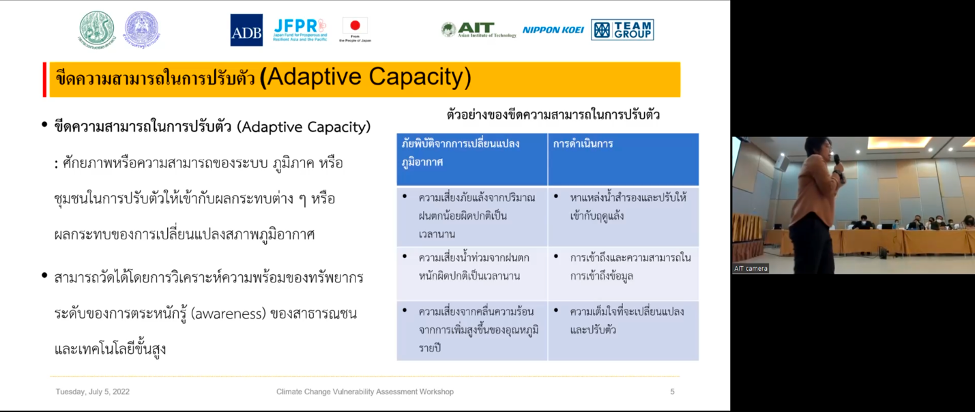
The capacity-building workshop proceeded with much enthusiasm from government agencies and various relevant ministries’ representatives, Director of the Office of Agricultural Economics (OAE), Thailand — Ms. Hirunya Srasom, responded to the methodologies that this should also be included in the collaboration plan with a variety of agricultural sectors. In addition, Senior Project Coordinator/Hydrologist in Climate Change and Climate Risk Management at Asian Disaster Preparedness Center (ADPC) Ms. Chinaporn Meechaiya, suggested the perception and insights from local farmers along should be included as a factor in the assessment.
The two-day workshop also arranged group discussions to gather beneficial insights that will consequently lead to policymaking and implementation practices, for example, climate-resilient practices and technologies for improving agricultural productivity; value addition; and measures to enhance food security in a changing climate.

